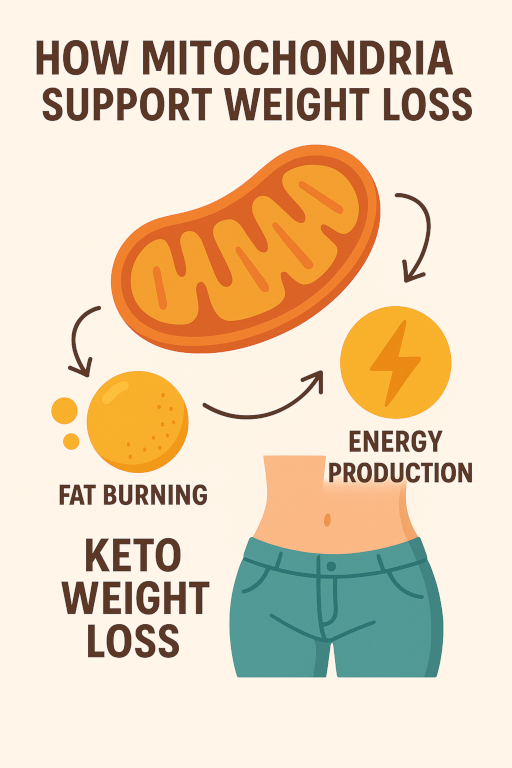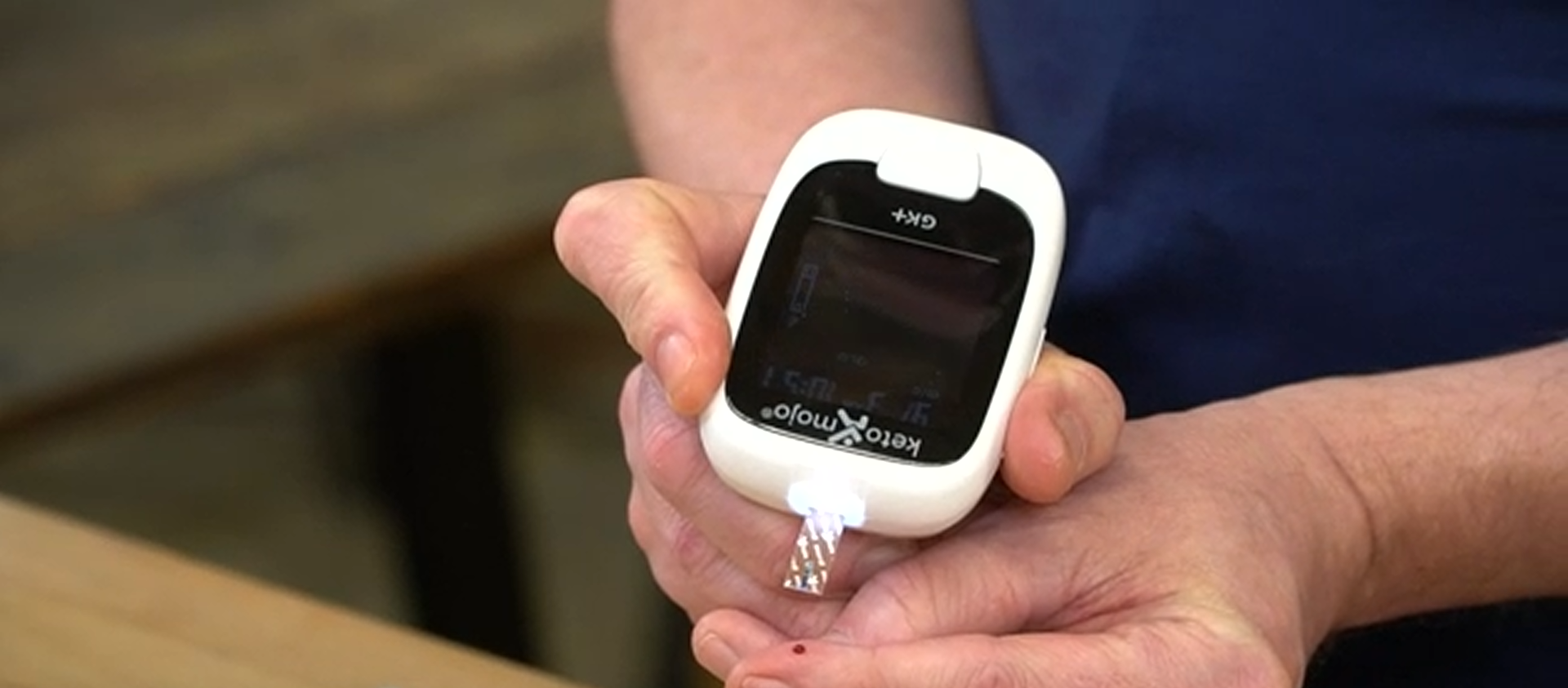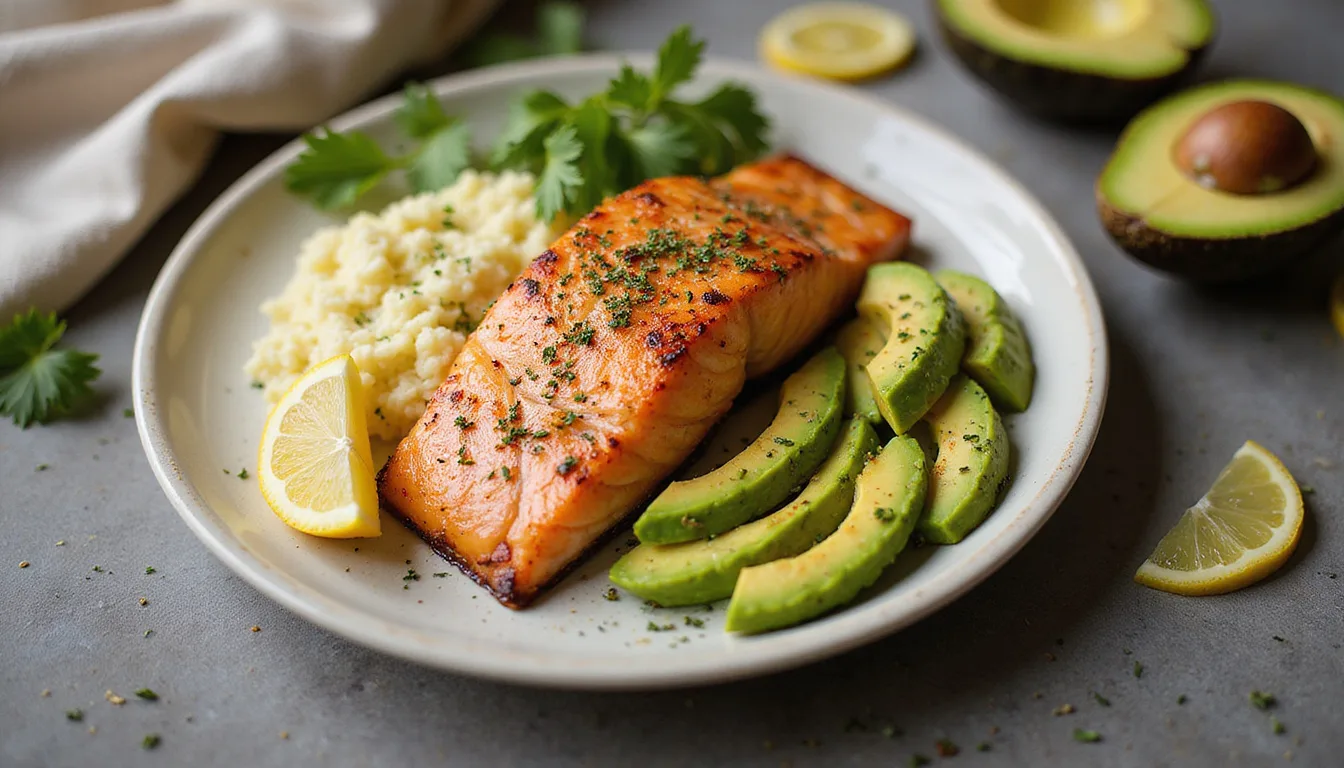
Mitochondria & Weight Loss: The Real Connection
Let’s talk about your mitochondrial health. Mitochondria are those tiny, mighty engines tucked inside your cells. If you’re stalling on keto despite doing “everything right,” these guys might be the reason. They fuel your metabolism, influence fat storage, and decide whether your diet works… or doesn’t.
Here’s the deal: if your mitochondria are thriving, your fat-burning potential skyrockets. If they’re sluggish? So’s your scale.
What the Heck Are Mitochondria?

These little bean-shaped powerhouses take the food you eat and convert it into ATP—aka energy. Without healthy mitochondria, your body struggles to burn fat, your energy crashes, and your metabolism crawls.
So yeah, if you’re not losing weight on keto, don’t just blame the macros. Blame your cellular engines too.
How Mitochondrial Health Affects Fat Loss
Let’s keep it simple:
- Efficient mitochondria = efficient fat burning.
- Sluggish mitochondria = more fat storage and low energy.
When your mitochondria are working well, you burn more calories at rest, handle carbs better, and recover faster from workouts. When they’re not? You’re stuck on the struggle bus.
What Wrecks Mitochondrial Health (And Your Progress)
- ❌ High-sugar diets
- ❌ Environmental toxins
- ❌ Sedentary lifestyle
- ❌ Chronic stress
- ❌ Oxidative stress
All of these create mitochondrial dysfunction and sabotage your weight loss goals—especially on keto, where energy production matters more than ever.
Mitochondria-Friendly Habits That Actually Work
🥦 Eat Smart
- Antioxidant-rich foods (think berries, leafy greens, nuts)
- Omega-3s (fatty fish, flaxseeds)
- Anti-inflammatory foods (hello turmeric)
- Keep it real. Ditch the ultra-processed junk.
🏋️♀️ Move Daily
Cardio. Strength. Stretching. Just move. I prefer to dance (Uptown Funk, anyone?) Exercise triggers your body to make more mitochondria, and that means more fat-burning horsepower.
😴 Prioritize Sleep
Mitochondria repair happens when you rest. Aim for 7–9 hours of real, quality sleep. No scrolling till 2 a.m.
🧘♀️ Stress Less
Stress trashes mitochondrial function. Meditation, breathing exercises, dog walks—whatever lowers your cortisol helps your cells.
💊 Supplements (When Needed)
- CoQ10
- Alpha-lipoic acid
- L-carnitine
- Mitolyn
But don’t guess—talk to your healthcare provider before loading up.
Mindset: Your Mitochondria Can Feel Your Vibe!
It’s not just about food and workouts. Studies show that chronic stress—and conversely, positive mental states—can directly affect mitochondrial function. link
- A major review found that psychological stress impairs mitochondrial structure and function in both animals and humans link.
- Positive experiences are linked to increased abundance of mitochondrial proteins responsible for energy production in the brain link.
Even short mindfulness and meditation sessions make a difference:
- An 8-hour weekend mindfulness program boosted indicators of mitochondrial function and reduced anxiety link.
- Yoga and meditation practices have been shown to lower inflammation and promote mitochondrial repair link.
So yeah—it’s not woo-woo. There’s real science showing your mental state influences your cellular engines.
Send them good vibes. They’re listening!
Mitochondrial Health Habits That Hurt Your Progress
- Too much sugar – Messes with insulin, creates inflammation
- Toxins – Think pesticides, plastics, household chemicals
- Antibiotic overuse – Ruins gut health, which links directly to mitochondria
You can’t avoid everything, but you can cut back. Every little shift helps.
The Future of Fat Loss: It’s Cellular
As science catches up, more tools will emerge—mitochondria-specific diets, targeted therapies, even DNA-based interventions. But you don’t have to wait. You can start now with smart, doable choices that support your cells and your goals.
Bottom Line: Fat Loss Starts in Your Cells
Want results on keto? Start with your mitochondria. Eat real food. Move your body. Get sleep. Chill out. These little changes help you burn fat smarter, not harder.
This isn’t diet hype. It’s biology—with a side of sass.

💬 FAQ Section
Q: Can mitochondrial dysfunction make it harder to lose weight on keto?
A: Absolutely. If your mitochondria aren’t converting energy well, you’ll burn less and store more—even if you’re eating keto-clean.
Q: What are the best keto-friendly foods for mitochondrial health?
A: Load up on leafy greens, berries, nuts, and fatty fish. Add turmeric and omega-3s. Skip the processed keto bars and fake sweeteners.
Q: Should I take supplements for mitochondria?
A: Maybe. CoQ10 and L-carnitine are promising—but talk to your doc before adding anything to your stack!




